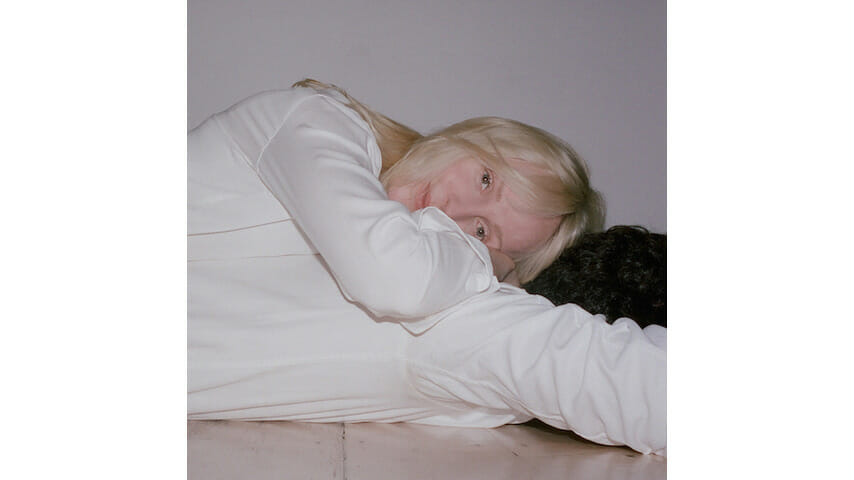Laura Marling’s Stunning Song For Our Daughter Arrives Right On Time
Marling’s seventh album is simpler and more straightforward than its predecessors, but it hits just as hard
Music Reviews Laura Marling
Halfway through “Held Down,” the lead single from Laura Marling’s surprise-released seventh album, the English singer/songwriter gives a cheeky little hint for anyone considering writing about her: “You sent me your book which I gave half a look / But I just don’t care for and I cannot get through / But you’re writing again and I’m glad, old friend / Now make sure you write me out of where you get to.” It’s an interesting inclusion here, as Marling has made a career out of ever-so-subtly writing about her own personal relationships and breakups, whether they’re about famous exes or not, but cloaking autobiographical details underneath multiple levels of metaphor or imagery. She always writes from an extreme approach, either from the perspective of a character of her own invention or an obscure one deep in literature, rarely, if ever, giving any hints to what is real life or not, sometimes frustratingly so.
As a result, her albums are centered around specific characters—Once I Was An Eagle’s Rosie, A Creature I Don’t Know’s The Beast and Sophia (the Greek goddess of wisdom)—or around a looser subject (Semper Femina’s look at femininity or societal gender roles on I Speak Because I Can). Perhaps that’s why Marling isn’t seen as the legendary singer/songwriter that she truly is: It’s hard to latch onto her albums because she hides herself under different characters and perspectives, never truly revealing herself.
But, like Bob Dylan before her, this is also her greatest strength, as impenetrable as her lyrics may be. Almost every song throughout her now-lengthy discography is subject to multiple interpretations, purposefully unclear and shrouded in layers of metaphor—and it’s an absolute joy to parse through the lyrical breadcrumbs and try to make sense of it all.
Song For Our Daughter continues this trend, introducing us to “Alexandra” in the first line of the album. She’s presumably the titular Daughter, “The Girl” that Marling referred to in her statement announcing the record earlier this week: “How would I guide my daughter, arm her and prepare her for life and all of its nuance? I’m older now, old enough to have a daughter of my own, and I feel acutely the responsibility to defend The Girl. The Girl that might be lost, torn from innocence prematurely or unwittingly fragmented by forces that dominate society.”
There’s a personal devotion to The Girl, who Marling essentially treats as her own child throughout the record, despite referring to her as Our Daughter in the title, which is perhaps a play on the Mancunian idea of our kid. “What became of Alexandra, did she make it through?” Marling asks at the beginning of “Alexandra” before seemingly answering her own question via different snapshots and stories throughout the next nine songs. Alexandra runs away from home (“Held Down”), steals money from her mother (“Fortune”), breaks up with a man named Max (“The End of the Affair”), yearns for her “man in those Eastern woods” (“Hope We Meet Again”), is on the receiving end of unwanted sexual coercion (“Song For Our Daughter”) and experiences an event so traumatic that her mother is “on the phone already talking to the press” (“Blow By Blow”). “I’ve lived my life in fits and spurts,” Marling sings on “Hope We Meet Again,” but judging by the various events throughout Song For Our Daughter, Alexandra has been through a lot.
Marling, however, maintains a light tone throughout. There’s little to no percussion on side two, and the tempo—excluding upbeat acoustic strummer “Strange Girl”—remains relatively calm throughout side one as well. Strangely-tuned fingerpicked tracks have been replaced by meditative folk songs with gorgeous string accompaniment by Marling’s former collaborator and indie rock ace Rob Moose. Album highlight “Blow By Blow” includes the rarest thing of all for the English troubadour: a piano ballad. It’s the first time she’s prominently featured the instrument across her seven albums: You’d have to go all the way back to “Typical” from her 2007 EP My Manic and I, which predates her debut full-length, to find anything that resembles it.
But Song For Our Daughter also sacrifices the musical variety of its predecessors. There are no angry, loud tracks like 2011’s “The Beast” or 2013’s “Master Hunter” here. Nor are there morose, hair-raising songs like 2008’s “Night Terror,” 2010’s “What He Wrote” or 2011’s “Night After Night.” “Strange Girl” and “Alexandra” gently approach prior folk anthems like “Sophia” or “Short Movie,” but never quite reach the same sing-along heights.
Unlike Marling’s past albums, Song For Our Daughter mostly stays in one sonic lane. It makes for a pleasant and calming listen—which is presumably why Marling pushed the release date from August to early April while we’re all anxiously sheltering in place. “In light of the change to all our circumstances, I saw no reason to hold back on something that, at the very least, might entertain, and at its best, provide some sense of union,” she wrote, later describing this collection of songs as a “strange whisper.”
At just 36 minutes, it’s her shortest record thus far, but it’s simultaneously Marling’s most straightforward, musically simplistic record to date and her most beautiful release yet. Song For Our Daughter is comforting, serving as a warm blanket for us to hide under during this uneasy historical moment. “I thank a god I’ve never met, never loved, never wanted, for you,” she sings on Song For Our Daughter’s finale “For You.” We’re just as grateful that this album arrived when it did.
Steven Edelstone is the former album reviews editor at Paste and has written for the New York Times, Rolling Stone, the Village Voice and more. All he wants is to get a shot and beer combo once this all blows over. You can follow him on Twitter.